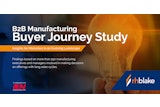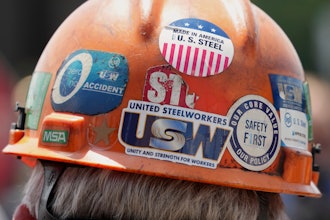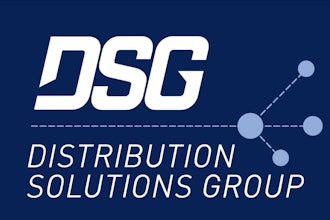
What’s come to be known as “social media” has successfully infiltrated almost all aspects of business. Many businesses have not only developed social media policies and guidelines for their employees (e.g., to protect proprietary business information, preclude improper employee communications, etc.), but also have begun monitoring workplace activities in order to keep tabs on what employees are doing and saying about their workplace or employer. Not surprisingly, then, disputes have arisen concerning limits for such employee oversight. When is an employer crossing the line into an actionable violation of employee rights? Similarly, what are the limits on protected employee behavior?
In its most recent opinion on the subject, the National Labor Relations Board (NLRB) found that Triple Play Sports Bar, a non-union employer, twice violated Section 7 of the National Labor Relations Act (Act) by (1) firing two employees for participating in certain Facebook postings (one with a simple “Like” click), and (2) promulgating a social media policy that was, on its face, illegal under the Act.
One fundamental tenet of labor law is that employees have the right to “form, join or assist unions” and to “engage in other concerted activities for their mutual aid and protection.” Employers simply cannot interfere, restrain, or coerce employees in exercise of these Section 7 rights, without running afoul of the NLRB, which is exactly what Triple Play did when it fired the two employees in question.
What exactly happened in the Triple Play case? Suspecting that Triple Play had not withheld proper state income taxes from her paychecks, a former Triple Play employee posted a negative comment blaming Triple Play’s owners for her state income tax shortfall. The Facebook conversation escalated as other employees joined in, including mention of reporting the situation to the authorities. At one point, a current employee simply responded by a “Like” click, while another posted that she too owed state taxes and used an “expletive deleted” to describe one of the owners. Triple Play ultimately confronted the two employees about these posts and fired them for violating its Internet/Blogging Policy, which among other things precluded “inappropriate discussions about the company, management and/or co-workers.”
It was undisputed in the case that the postings were protected activity, because the ongoing discussion related to terms and conditions of employment (underreporting of income tax) and had evolved to the point where employees planned to raise the issue at a staff meeting (i.e., group action). The NLRB rejected Triple Play’s argument that “liking” certain commentary makes one responsible for other defamatory statements posted in the “Liked” discussion, and found that the derogatory description of an owner was a non-actionable personal opinion. Ultimately, the NLRB balanced the employees’ Section 7 rights with the alleged inappropriate employee conduct, to determine whether such conduct fell outside of protection of the Act, finding that the employee conduct did not cross the line and, in fact, was protected under Section 7 of the Act.
The NLRB also analyzed the employer’s policy, finding that its above-quoted language was overly broad and not comparable to restrictions in other policies which the NLRB has upheld. Specifically, the policy was in violation of the Act because employees reading it could reasonably conclude that the policy’s “prohibition against inappropriate discussions” could “encompass (prohibition of) ‘discussions and interactions protected by Section 7.’” The NLRB reinforced its conclusion by citing the two employee terminations as “an authoritative indication of the scope of (Triple Play’s) prohibition.”
Key Takeaways
The Triple Play decision reinforces key “takeaways” for employers:
- Non-union employers are also at risk for legal action based on a violation of the Act and must consider that risk in addressing workplace issues.
- Even a “Like” or similar thumbs-up on social media postings can be concerted protected activity, which will be analyzed on a case-by-case basis. Employers should tread carefully in assessing social media content in the context of taking adverse employment action, as each case will be considered individually by the NLRB.
- Evaluating specific posts, or even a “Like,” should be gauged against current law and/or reports that have been issued by the NLRB on various social media cases, and when policies and/or adverse employment action can violate Section 7 of the Act. Because the NLRB will balance employee rights to engage in concerted protected activity with the employer’s right to take adverse action against employees viewed as disloyal or having engaged in improper conduct, professional advice should be considered before making final decisions.
- Employers should pay close attention to policies that can implicate Section 7 rights, and particularly policies where language might be interpreted as unlawful, such as the “inappropriate discussions” language of Triple Play’s Internet/Blogging policy. The NLRB has found language like “inappropriate” to be both legal and illegal, depending on the circumstances.
- Many different policies can become the subject of NLRB scrutiny — not just social media policies. The NLRB has reviewed workplace policies ranging from “non-fraternization” to “no-access” to “confidentiality” and “non-disclosure.” Regular review of company policies and procedures by outside counsel is sensible on many levels.
Employers can become upset (and impulsively so) when they observe public expression that they view as insubordinate, disloyal, or disparaging. Depending on the context (e.g., group action on a social media site addressing terms and conditions of employment), today’s NLRB may not support adverse employment action and find that the Act’s Section 7 scales don’t favor the employer who takes such action.
Distributors interested in further discussion on this topic can contact me by phone (312-840-7004) or email at [email protected].























